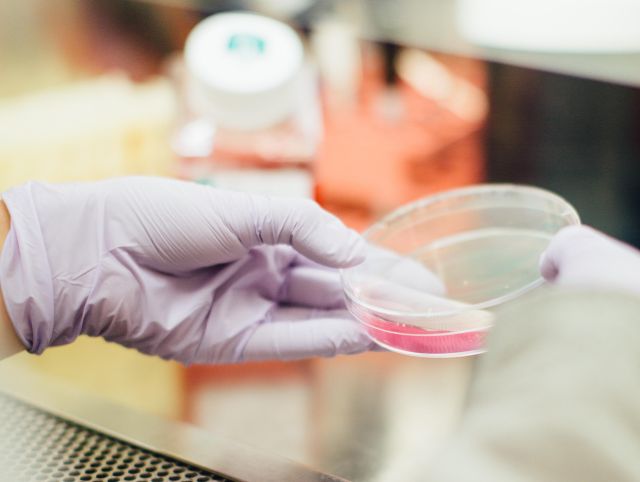Stem Cell Therapy

Stem-cell therapy is the procedure that treats or prevents a disease with the use of stem cells.
- Stem cells - biological cells that are yet undifferentiated, but can be differentiated into specialized cells. SCs are found in multicellular organisms and can divide through mitosis to produce more stem cells. There are two main types of stem cells:
- Embryonic stem cells - SC that arise from the embryoblast (mass of cells that will eventually form the embryo) at the preimplantation stage. The ESCs have the ability to differentiate into any cell type.
- Adult stem cells - cells that are not yet differentiated and their main goal are to replace dying, useless cells and regenerate the damaged tissue. The ASCs have the ability to divide and differentiate into any cell types of the organ that it originates from.
A lot of types of SC therapy are still at a research level, while others have been widely practiced over the years (bone marrow transplant).
Hematopoietic Stem Cell Transplantation (HSCT) - is a procedure used to treat blood cell or bone marrow cancers such as leukemia, lymphoma and multiple myeloma, by replacing the tumorous cells with viable stem cells. Sometimes it is referred to as bone marrow transplant due to the cells being more frequently obtained from the bone marrow, but they can also be taken from umbilical cord blood and peripheral blood. It is well known that chemotherapy (that these patients undergo) attacks not only cancerous cells but hematopoietic SCs as well. Many patients opt for collection of their stem cells before chemo – to preserve them - and implant them back after chemo. This type of transplantation is called autologous, but there can also be used allogeneic - donated SCs, and syngeneic transplantation - donated from an identical twin. HSCT not only regenerates damaged cells after chemo, but also stimulates the immune system of the patient.
A major complication of the HSCT is graft-versus-host disease. Sometimes, the graft (immune cells of the transplanted tissue) recognizes the host (the recipient) as a foreign tissue, and attacks the host’s body cells.
Some types of SCT at research level:
- Neurodegenerative diseases - Parkinson’s , Alzheimer’s and Amyotrophic Lateral Sclerosis;
- Brain and spinal cord injuries/Stroke;
- Heart diseases - myocardial infarction;
- Blindness - corneal stem cell transplantation. Sheets of retinal cells used for the transplantation are taken from aborted fetuses, cadavers, or donated from a person;
- Diabetes - transplantation of stem cells that will replace deficient insulin-producing pancreas tissue;
- Infertility - potentially treating azoospermia (the condition in which the man does not have spermatozoids in his semen);
- HIV/AIDS.
